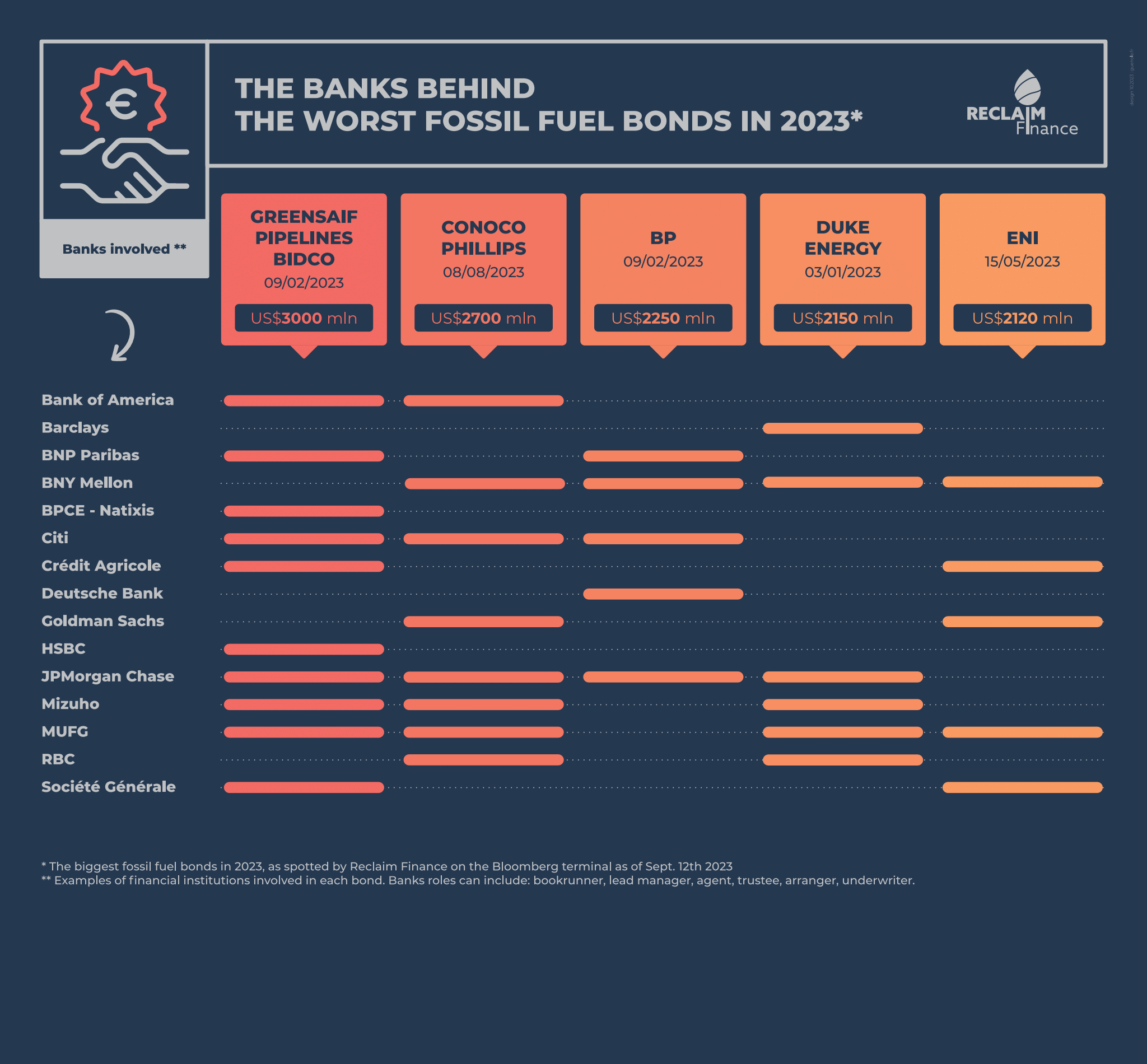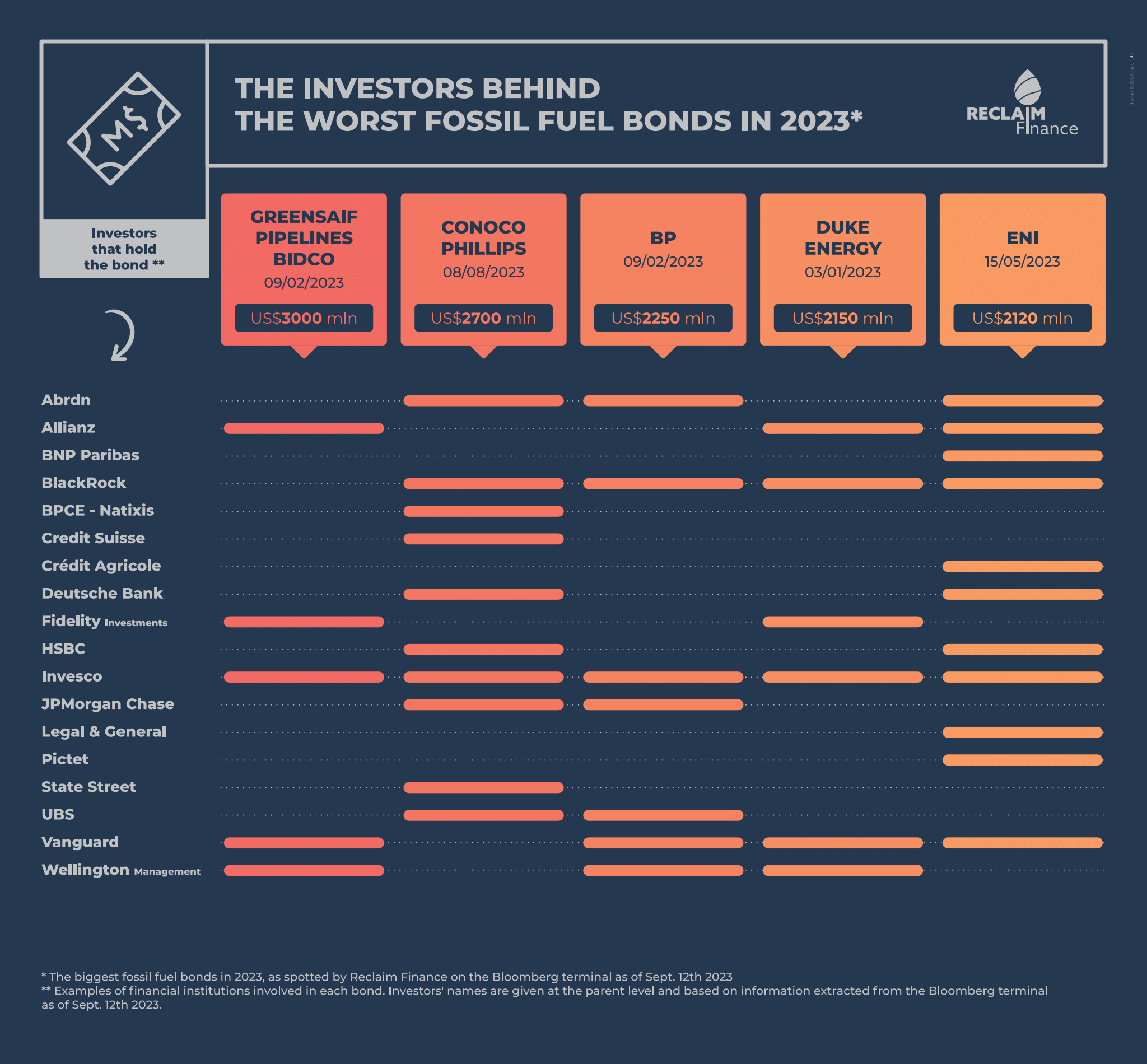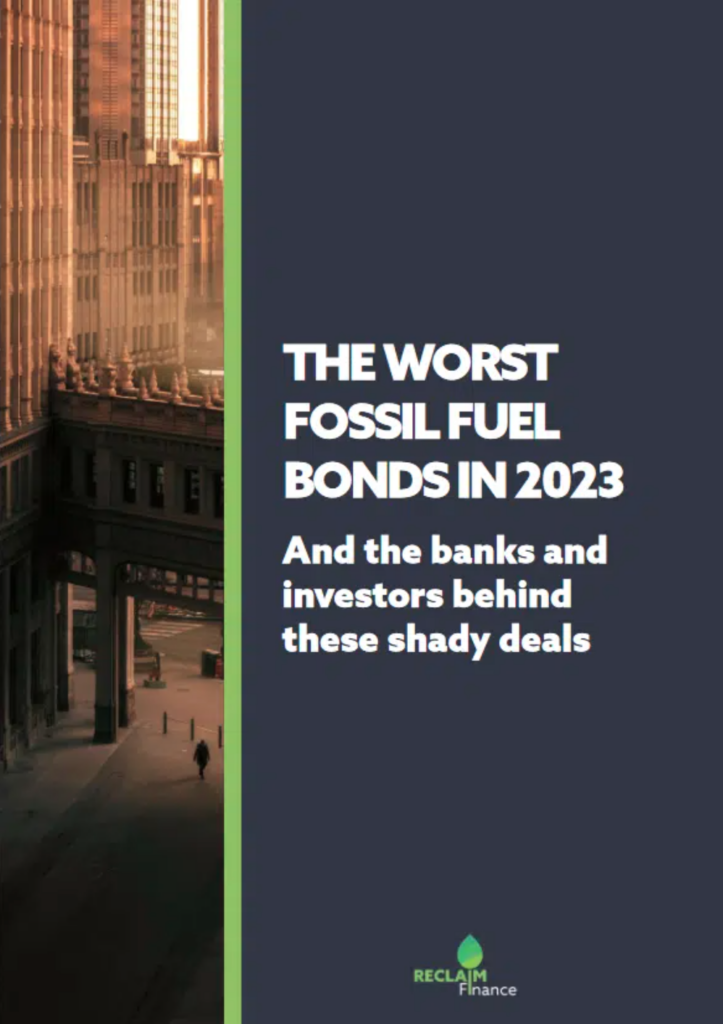The banks and investors behind the five biggest fossil fuel bonds issued in 2023 are revealed today in a new briefing from Reclaim Finance.
The briefing analyses the five biggest fossil fuel bonds issued by BP, ConocoPhillips, Duke Energy, Eni and Greensaif Pipelines Bidco, respectively, in 2023, which together helped raise more than US$12 billion for fossil fuel expansion. As banks and investors’ increasingly restrict project level finance to fossil fuel development, the bond market has become a safe haven for easy access to fossil fuel finance. Banks and investors must immediately stop investing in and underwriting bonds issued by fossil fuel developers.
Despite increasing policies to restrict fossil fuel lending, banks play a crucial role behind the scenes by underwriting fossil fuel bonds. Banks act as the gatekeepers, advising fossil fuel companies issuing bonds and marketing the bond to investors, disclosing all the necessary risk. The top banks underwriting the five biggest fossil fuel bonds this year include BNP Paribas’s involvement in the bonds issued by Greensaif Pipelines (linked to Saudi Aramco) and BP, Citi underwriting bonds issued by Greensaif Pipelines, Conoco Phillips and BP bonds, and JP Morgan’s involvement in Greensaif Pipelines, BP and and Duke Energy

Fossil fuel developers have increasingly looked to the bond market which has become a financial haven for polluters. Banks play a crucial role behind the scenes by structuring the bonds, which are then bought by investors, which are the effective lenders to the companies.
While banks rarely report on their involvement in issuing bonds, the briefing identifies key big banks behind the big five deals. These include BNP Paribas’s involvement in the bonds issued by Greensaif Pipelines (linked to Saudi Aramco) and BP, Citi’s involvement in the Greensaif Pipelines, Conoco Phillips and BP bonds, and JP Morgan’s involvement in Greensaif Pipelines, BP, Conoco Phillips and Duke Energy.
The briefing highlights the involvement of around a dozen investors in one or more of the five bonds, including abrdn, Blackrock, Vanguard and Allianz/PIMCO.

This backdoor finance for the fossil fuel sector comes despite the net zero commitments made by many banks and investors. Yet just last month, the International Energy Agency highlighted once again that no new investments in fossil fuels are needed to reach net zero, following a 1.5°C pathway.
Without robust policies and because of the opaque complex structures used for some of these transactions, there is a risk of greenwashing as some investors can end up including them in ESG funds, as happened with a GreenSaif bond that allowed Saudi Aramco to access money meant for sustainable investements. Part of the ENI bond included in the analysis was sold to investors as a “sustainability-linked bond”, despite ENI being one of the biggest fossil fuel developers in Europe. ConocoPhillips’ bond was also immersed in controversy as the issuance of the bond allowed it to acquire a Canadian tar sands field beyond some of its bondholders crossing exclusion thresholds.
“The bond markets have become a safehaven for fossil fuel developers looking for cash. Banks and investors are turning a blind eye to the activities financed by new bonds. But they are nevertheless responsible for financing new fossil fuel projects that lock us into ever more carbon emissions. The IEA has made it clear: there is no room for new fossil fuel projects in a net zero world. It is time for banks and investors to tighten their policies and stop exacerbating* climate change.”
– Lara Cuvelier, Sustainable Investment Campaigner at Reclaim Finance
Banks and investors appear to have a blind spot when it comes to their climate policies and the bonds issued by oil and gas developers. While 12 of the big banks have policies in place to no longer issue bonds for most coal developers, only two banks (La Banque Postale and Danske Bank) have adopted similar policies for oil and gas. Only a handful of investors have policies to stop investing in companies developing new oil and gas facilities.
